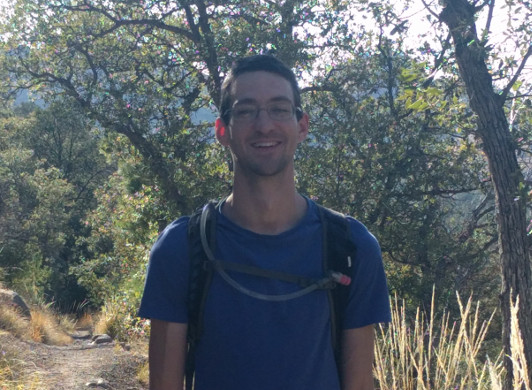
Research Associate (now Research Faculty at Indiana University)
email: jxb@iu.edu
Website: https://jasonbertram.github.io/
Google Scholar Page: https://scholar.google.com/citations?user=cgOBCWgAAAAJ&hl=en
I am a theoretical biologist and physicist studying evolutionary adaptation. I develop mathematical models of evolution to understand how populations overcome - or fail to overcome - the challenges posed by other organisms and the abiotic environment. My work emphasizes the interplay between ecology and evolution, and the role of genetic factors in hindering or facilitating adaptation. This is evolutionary ecology grounded in genetics.
Although evolutionary theory has grown increasingly quantitative and mathematically sophisticated, we have only scratched the surface of an eco-evolutionary synthesis. Evolution cannot be abstracted from its ecological context, but equally, evolution is fundamentally a genetic process, and genetic factors can profoundly influence trait evolution. Moreover, modern sequencing has revolutionized the importance of understanding evolution at the genetic level. Yet genetic evolution is still mostly studied in an ecological vacuum. And much of the existing eco-evolutionary work is formulated at the level of ecological traits, ignoring genetics entirely.
As a result, fundamental quantitative questions remain only partly answered. For example, how does the rate of adaptation depend on population size, selective pressures, and the frequency of genetic recombination? The answer could have important implications for the clinical management of infectious diseases and cancer, as well as the conservation biology of population collapse or recovery. Another only partially answered question is what are the signatures of selection in populations undergoing rapid demographic change? The answer is essential for making accurate inferences about the evolutionary past from sequence data, and for making sense of microbial evolution experiments.
I am a recent convert to evolutionary biology. My academic roots are in mathematics and physics, but I have also published in ecology. There is much overlap between theoretical population biology, statistical physics, and the mathematics of probability and stochastic processes. The broad theme of my PhD was to develop "top-down" entropy-based methods from statistical physics for use in ecology and turbulence theory.
Publications: Google scholar page